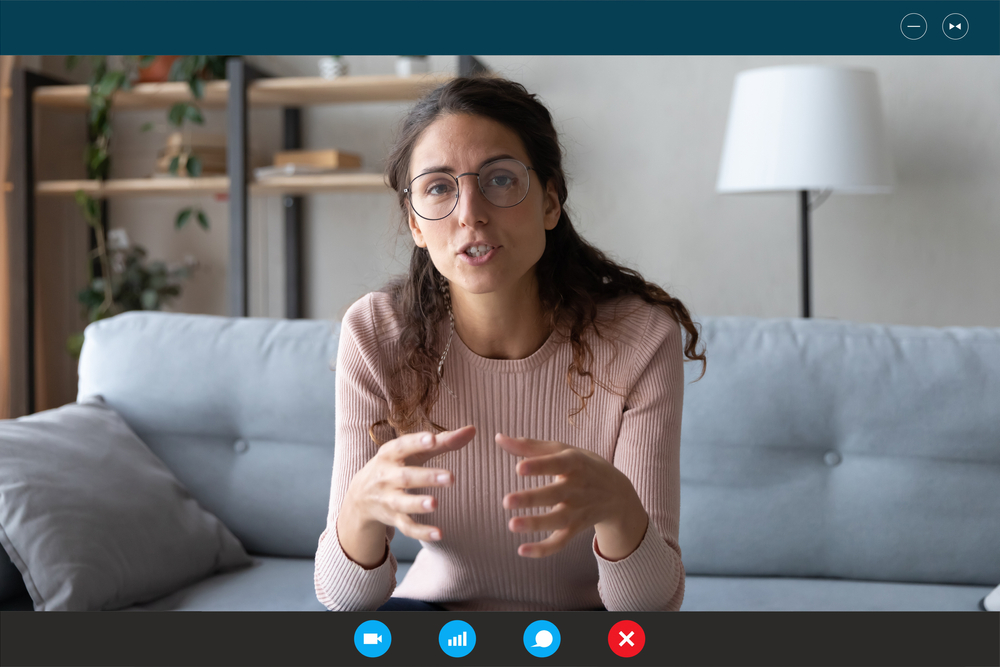What Makes Japanese Interviews Different

Although my only reference is job interviews in my home country of the United States, I can say that Japanese interviews (thankfully) tend to be easier and less stressful*. Whereas in the U.S., applicants are usually asked a series of very tough questions designed to test practical knowledge and judgment skills, in Japan, many of the questions are more about getting to know the applicant and gauging their personality.
While Japanese interviews will still have their fair share of difficult questions, I would say that it is overall easier to prepare for a Japanese interview, and as long as you avoid doing the things in this article, you should be just fine.
*Note that in-person Japanese interviews, on the other hand, can be trickier as you need to master such formalities as when to sit down, how to close the door correctly, how to leave the room, etc. For a more general overview of Japanese interviews, see our article Tips for Nailing a Job Interview at a Japanese Company.
Ways to Fail a Japanese Interview
If you do any of the following things, you can be sure that your chances of failing the interview will increase spectacularly. Most should come as common sense, but be sure to take note in any case.
1. Show Up Late

This is pretty universal, but especially in Japan, punctuality is incredibly important. Showing up late to work without giving notice is a big no-no, and especially when a client is involved, tardiness is never acceptable. That’s why it is so vital that you show up on time to your interview—your ability to be punctual will be judged based on this alone.
In general, it’s a good idea to show up about ten minutes early for an in-person interview. For an online interview, make sure you check your internet connection and video/audio stream in advance and be ready to log in to the chat exactly at the predetermined time.
If you notice that there’s an issue with your connection and you think you will end up being late, send a message to the interviewer via email or any other method that you can as soon as possible (preferably before the scheduled time of the interview so that you can show that you were ready on time).
2. Have a Mess in the Background and Wear Overly Casual Clothing

Japan is a fairly conservative country, and formality is something that is valued highly, particularly when it comes to business. The way you present yourself in an interview is likely to be seen as an example of how you will present yourself to clients and coworkers at the company should you be hired, so it’s essential to give a good impression.
Nowadays, blurring out the background should be an option with pretty much any video chat software, but it’s best to make sure that anything that could potentially show up on the screen is nice and tidy. For most companies, wearing a full-on suit probably won’t be necessary, but wear at least business casual (a collared shirt or similar) and make sure that it is obvious to the interviewer that you took time to make yourself look presentable.
Of course, you should use your discretion and do wear a suit if you’re interviewing with an older or very large company that may have more old-fashioned standards.
Tip: If you’re shopping for attire for your interview in Osaka, be sure to grab this coupon for Kintetsu Department Store!
3. Don’t Bother With Teineigo, Just Use Casual Japanese

Polite language (“teineigo”) and honorific language (“keigo”) are some of the biggest challenges that many foreign speakers face when learning Japanese. However, it is a very important aspect of the language to become familiar with as you will inevitably need to use teineigo and keigo on a daily basis if working at a Japanese company.
During your interview, it’s important to show the interviewer that you are able to communicate in a polite manner, using ~desu ~masu forms and avoiding slang or other types of casual speech. Don’t worry about being perfect—even Japanese people struggle with keigo—but do your best to show that you are making an effort to be polite and respectful.
4. If You Don’t Understand Something, Pretend That You Do

Showing that you are a competent communicator is one of the most important aspects of the interview. Something that comes with that is asking for clarification when you don’t understand something (trust me, it will happen a lot at work).
Unfortunately, some people get worried that if they admit that they didn’t understand something that was said, the interviewer might think that their Japanese isn’t good enough, so they instead nod along and hope that their lack of comprehension won’t be found out. This is a big mistake.
If there’s something that you don’t understand, clarify it with the interviewer (politely, without saying something like “Eh!?”). Ask them to repeat or rephrase their question until you understand. For example,
If you couldn’t catch what the interviewer said:
申し訳ございません。聞き取れませんでしたので、もう一度おしゃって頂けませんか? (I’m sorry. I couldn’t catch what you said, so could I ask you to please repeat it again?)
If you think you understand the meaning of something, but you want to make sure:
すみません。meaningの解釈で問題なかったでしょうか?(I’m sorry. Is my understanding of meaning correct?)
Or if you heard what the interviewer said, but don’t know the meaning of something:
すみません。Somethingとはどういう意味でしょうか?(I’m sorry, what does something mean?)
Clarifying like this will show your ability to effectively communicate and will build your trustworthiness, rather than make you look bad. The last thing you want is to be caught pretending that you understand something when you don’t—that would be a surefire way to fail.
5. Don’t Ask Any Questions

At the end of the interview, you will almost certainly be asked the question 質問はありますか?(Do you have any questions?) When this time comes, be prepared with a few questions that you thought of beforehand. This is more than just an opportunity to learn more about your potential employer—it’s also a chance for them to gauge your communication skills and interest in the position. Be sure to ask questions that couldn’t easily be looked up on the company’s website or that were already answered in the interview. That would have the opposite effect of making you appear inattentive.
6.Make Your Answers as Short as Possible

If you want to fail an interview, one of the best things you can do is to give short, vague answers to as many questions as possible. Especially as a foreign resident, a big part of the interview will be about judging your communication skills. Interviewers like to hear answers that include specific examples, not general statements, so be sure to come armed with talking points for each potential question.
The following are some commonly-asked questions, with a bad and good example answer for your reference. I’m not a native Japanese speaker, so there may be some errors in my Japanese, but hopefully it will still serve as a useful reference.
Note that this section assumes a level of Japanese necessary to successfully complete an interview in Japanese and that the Japanese is not translated into English. If reading Kanji isn’t your strong suit, we recommend using a plugin such as Rikaikun to help you read the sample Japanese answers.
Please Introduce Yourself (自己紹介をして下さい)

This is a question that you are pretty much guaranteed to be asked at the beginning of your interview, so make sure you come prepared with a good self introduction. A bad example might be as follows:
こんにちは。スミスと申します。私は現在英語教師として働いています。よろしくお願いいたします。
This is deemed as a poor self introduction because it is far too short. If you’re unsure of what to say in your self introduction, here is a list of things to include:
- Name
- Age
- Country/City of origin (in your native country)
- Highest completed education
- Work career up to this point (or details about your major/activities at university if you are a new graduate)
- Hobby/interest
- Reason for applying to this job
A better example of a self introduction might be:
こんにちは。スミスと申します。今年29歳になりました。出身はアメリカのシアトルで、シアトルにあるワシントン大学でコンピューターサイエンスを勉強しました。卒業後はシアトルにあるITスタートアップ企業で4年ほどエンジニアとしてアプリ開発をしていました。そして3年前ぐらいに、日本に引っ越す機会があったため、初めて来日をしました。日本に来た頃はまだ日本語能力が足りなかったため、エンジニアではなく、英語教師として働いていました。その時、夜は日本語学校に通って、日本語の勉強もしていました。そして、最近日本語能力試験のN2を取得できましたので、改めてエンジニアとして働きたいと思います。趣味はRPGゲームなので、御社が作るスマートフォンゲームにとても興味があり、応募しました。本日はよろしくお願いいたします。
Why Did You Come to Japan?(日本に来た理由を教えて下さい)

As a foreigner applying for a job in Japan, this is another question that you will likely be asked some variation of. While it may seem like a light question, it is often asked to gauge your level of commitment to living and working long-term in Japan. It’s best to be honest about the things that brought you to Japan, but try to avoid saying something that might imply that you only intend to stay short-term, eg.:
少しの間、外国に住んでみたかったから日本に来ました。
This answer gives the impression that you’re likely to move back to your own country in a year or two, which would likely dissuade the company from hiring you. Instead, focus on what you like about Japan and give an answer that makes it seem like you might be here for a while:
昔から日本の文化に興味を持っていましたので、ずっと日本に引っ越したかったです。実際に住んでみたら、とても住みやすい国だと気づきましたので、今は日本でキャリアを築いて行きたいと思っています。
Why Did You Choose Our Company? (当社を選んだ理由を教えてください)

When asked this question, it is very important that you give an answer that shows that you have thoroughly looked into the company and are serious about wanting to work there. A poor answer might focus on the negatives of your last job or monetary and other benefits of this job without detailing why you think you are a good fit for the position:
今の会社は結構ブラックで、残業がとても多いです。御社は給与が高く、残業が少ないので選びました。
Instead, focus on the ways in which your specific skills and experience fit the position and why you think you will enjoy the work:
私の趣味がゲームなので、御社が作るスマートフォンゲームに興味があります。仕事としてゲームを開発したことはありませんが、アメリカの会社でスマートフォンアプリ開発の経験はあって、個人でゲームを作ったことはありますので、このポジションに必要なスキルは十分あると感じます。
What Did You Do at Your Previous Job(s)?(前の仕事ではどんな業務をしていましたか?)

In your answer to this question, be sure to include not just details of your duties, but also success stories and results where possible. A poor answer might include only what you did with little other details:
現在英会話教師として働いています。日常英語を日本人の生徒に教えます。前の会社ではフロントエンドエンジニアとして働いていました。
The above answer is a poor example because you are merely stating what you did without going into any details about how you did it or what you accomplished. Here is a better answer:
英会話の仕事で、1対1のレッスンを行って、子供から大人までの生徒たちに英語の日常会話スキルを教えています。自分でレッスンの内容も企画して、楽しい英語のゲームも考えて作っています。アメリカの会社で自社の金融アプリを開発しました。入社した頃はテストやコーディングなどの作業を4人いるチームで行ましたが、最後の一年間ぐらいは上流工程を担当していました。その年、開発していたアプリはアップストアで金融カテゴリで3位まで人気になりました。
What Is Your Greatest Achievement So Far? (これまでで一番の成功体験は何ですか?)

A common mistake when answering this question is to merely state what your achievement was without sharing any details about about the steps you took to achieve it:
アメリカの会社で開発したアプリがアップストアで人気になったことがこれまでで一番の成功体験です。
This answer is far too short and doesn’t describe the actions that you took to achieve the success. A better example might be:
先ほども言いましたが、開発していたアプリがアプストアの金融カテゴリで3番まで上がったことがこれまで一番の成功体験でした。アプリをそこまで成長させるには、ユーザのフィードバックを重視して、小さい改善をPDCAのサイクルで積み重ねるのが大事でした。チームの構成も大切で、皆が自分の役割をきちんと把握して、責任をとることで生産性をあげることが出来ました。
Tell Us About a Time When You Made a Mistake at Work (仕事で失敗をしたエピソードを教えてください)

Just as with the previous question, the key when answering this question is to make sure that you not only explain what your mistake was, but also what steps you took to correct your error and make sure that it didn’t happen again. A poor example might be like this:
あメリカの会社である時同僚にコードの修正を頼みました。本当はメールやチャットで残せばよかったのに、口頭だけで伝えました。結果として、彼が依頼の内容を勘違いして、リリースに間に合いませんでした。大変でした。
This answer goes into a little bit of detail about what the mistake was, but it doesn’t say anything about how you handled it after you messed up. A better example might be:
アメリカの会社で、ある時、同僚にコードの修正を口頭で頼みました。リリースが翌日でしたので、急いで修正する必要がありました。しかし、彼はその修正が次回のリリースのためだと勘違いしたので、すぐにやりませんでした。その結果、コードが修正されなくて、リリースに間に合いませんでした。その時以降、誤解が起こらないように、口頭だけじゃなくて、必ずしもメールやチャットで残すようにしていました。
What Kind of Career Do You Hope to Lead Going Forward? (今後どういうキャリアを歩んでいきたいですか?)

This is a question that might seem fairly casual on its face, but actually, it is used to determine an applicant’s ambition, as well as their ability to make their plans a reality. A poor example of an answer might be:
正直に言うと、そこまでは考えていますん。とりあえず御社みたいな会社で働きたいと思います。
This answer, while honest, won’t leave a good impression on the interviewer.They are looking for an answer that demonstrates that your interests and ambitions are in line with the work that you would be doing at the company. Even if you don’t have concrete goals, share your best inkling of what your goal might end up being:
数年御社みたいなゲーム会社に配属して、経験を沢山積み重ねてから、将来は自分のゲーム会社を作りたいと思います。
Don’t Make These Mistakes, and You’ll Be Well On Your Way to a New Job!
Hopefully these tips have been helpful in some way, even if they seem pretty obvious. Good luck to you on your job hunt!
If you want to give feedback on any of our articles, you have an idea that you’d really like to see come to life, or you just have a question on Japan, hit us up on our Facebook!
The information in this article is accurate at the time of publication.

